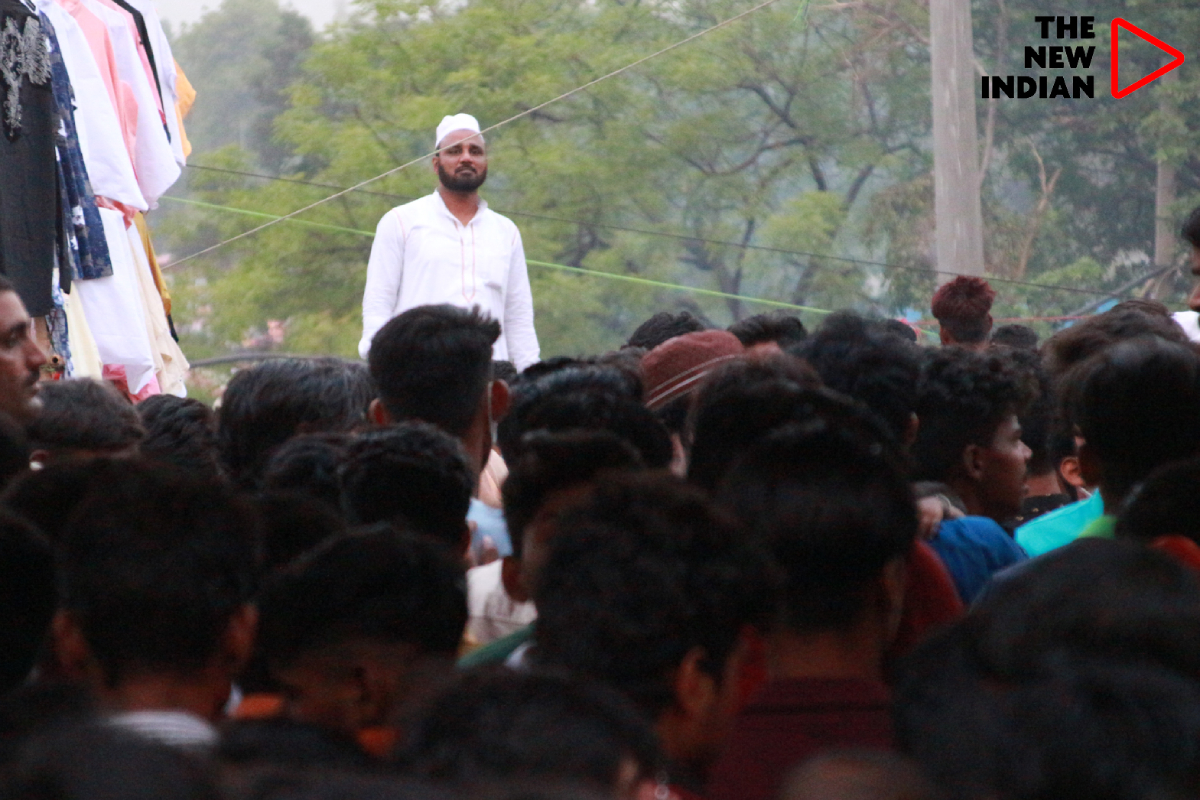

Is the American/Indian press downplaying the seditious threat of homegrown Islamist radicalism and the influence of Islamists’ propaganda arm on their/our governmental policies?

It’s soccer season! The newsfeed inevitably throws up images of matches, players, wins, losses, and fans cheering for their teams, wearing their jerseys in fandom culture. So, it was amusing to read M Zuhdi Jasser say, “Before an individual takes a turn toward violence and dons the military vest and weaponry of an Islamist, he spends years wearing the jersey of the Islamist team. As long as we focus only on the weaponised Islamists, and not all Islamists, we are in a state of unmitigated surrender.” I am presuming Zuhdi Jasser means the moderates wearing the jersey of Islamists for years before finally crossing over to the dark side, often with no path leading back, completely radicalised.
Zuhdi Jasser is a former US Navy Lt Cdr, physician, President of the Islamic Forum for Democracy, and author of ‘A Battle for the Soul of Islam: An American Muslim Patriot’s Fight to Save His Faith’. He was disturbed by what he calls the division of Muslims along partisan lines of those who believed every Muslim was a potential threat and those who believed no Muslim could do wrong, in the wake of 9/11. The global scrutiny turned towards Islam, was appalling for Dr Jasser, forced to face the new reality as a devout Muslim and patriot and the need to answer a question that crossed the minds of even the most sensitive and politically correct: “Can a good Muslim be a good American as well?” This question is familiar to the Indian national discourse where even the staunchest Leftist or Liberal is plagued with this question, though they may search for answers in the confines of their champagne socialist parties with their most trusted ones.
Dr Jasser asked uncomfortable questions long before R Jagannathan put his 10 questions to the Indian Muslims for a debate and discussion internally and then announced it to the world at large. The terms ‘American Muslim’ and ‘America’ could easily be replaced with ‘Indian Muslim’ and ‘Indian’ in the hard questions below such as:
*Are American Muslim/Indian Muslim children learning entitlement as victims, or are they being taught individual responsibility and critical thinking?
*Are poisonous conspiracy theories dividing their American/Indian identity, or are they gaining exposure to reason, nationalism, and patriotism?
*Are Muslims publicly critical of the Islamist movements of the Middle East, or do they remain silent on aspects of religious doctrine that conflict with modernity and universal equality?
*Is the American/Indian press downplaying the seditious threat of homegrown Islamist radicalism and the influence of Islamists’ propaganda arm on their/our governmental policies?
*Is their/our culture of political correctness a major obstacle toward long-overdue Muslim reform against Islamism?
Dr Jasser reiterates that the threat of Islamism is a Muslim problem and that it needs a Muslim solution which he has explored in his book. But being the reformer that he is, he also sharply refers to obstacles in his efforts for reform from the Brookings Institution senior fellow Shadi Hamid, author of ‘Islamic Exceptionalism: How the Struggle Over Islam is Reshaping the World’. In Shadi, one can recognise the Leftist leaning, supremacist, insurgent that Dr Jasser calls him who is frank about the unlikelihood of Islam ever going the Enlightenment and secularism way of Christianity; given they are totally different religions with different founding moments and histories, despite belonging to the Abrahamic faiths.
Having been politically incorrect all my adult life, I support saying how things are. So when Shadi writes that Islam is distinctive in how it relates to politics, which can be traced to its ‘founding moment in the seventh century’, he is correct, though he also goes on to emphasise that today’s Muslims are not bound to that moment but they cannot escape from it easily, either. Then in true supremacist fashion, he goes on,” Islamic exceptionalism is neither good nor bad, it just is.” Elaborating further that the Prophet was a theologian, a politician, a warrior, a preacher and a merchant, all at once, in addition to being the builder of a new state, he adds, “It is difficult to know when he was acting in one role rather than the other (which has led to endless debates over whether some of the Prophet’s actions in certain domains were, in fact, prophetic).
The approach of both these Muslim Americans, when one of the unsettling social shifts in the wake of 9/11 is the global attention paid to Islam, is worth observing and learning from, considering India has stakes in the intentions of its 174 million Muslims. Dr Jasser believes the only antidote to Islamism (political Islam) is the ‘advancement of liberty, freedom and universal values of human rights protected by secular national identity. But then Shadi Hamid factually states that this advancement of the above-mentioned cannot be possible due to the “exceptionalism” of Islam’s founding moment and because the Quran is God’s direct and literal speech for billions of Muslims globally. So, to hope for a secularisation of a distinctive religion whose politics and religion are intertwined from day one is idealism or wishful thinking.’
Since Shadi asks the Westerners to do something uncomfortable and difficult like needing to accept Islam’s vital and varied role in politics and formulate policies with that in mind, it becomes important for Indian policymakers, jurists, intellectuals, media, civil society to keep in mind this reality when deciding/debating/discussing the nature of the Indian state in the future.